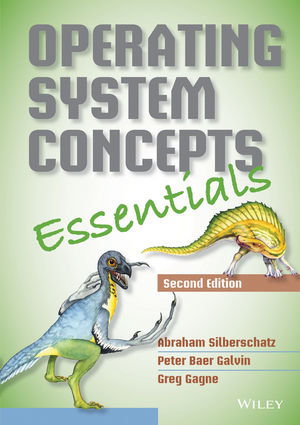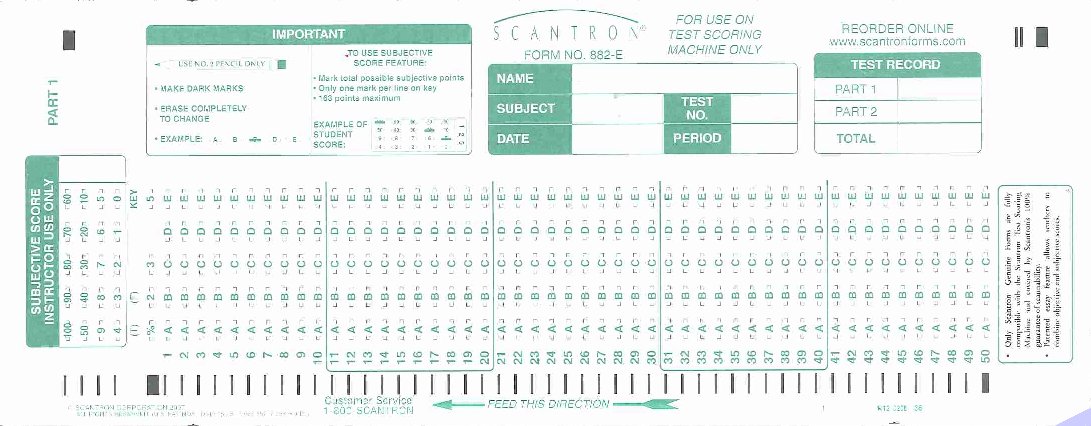PROFESSOR:
Marek A. Suchenek, Ph.D.
CLASS MEETS:
Mo, We 4:00 - 5:15 PM in WH C-155
OFFICE HOURS (subject to change):
January 22 - May 11, 2018, only, excluding holidays and recess

PREREQUISITES:
CSC311, CSC331, and MAT321 (or equivalent) with grade C or better.

OBLIGATORY TEXTBOOK. The scope of the course is covered by:
Silberschatz, Galvin,
Operating System Concepts Essentials,
2nd Edition, Addison-Wesley 2013, chapters 1 - 14.
ISBN 978-1-118-80492-6
CATALOG COURSE DESCRIPTION. Overall structure of batch and time-shared
operating systems. Scheduling of jobs, CPU and I/O devices. Paged and
segmented memory management. I/O programming and file handling.
Synchronization of concurrent processes.
QUIZZES. A number of short quizzes will be administrated
during semester. They will be announced one class ahead. One lowest
quiz score will be dropped.
MIDTERM. One midterm (60 min) will cover the foregoing material. The
midterm is scheduled on
Wed., Mar 21.
It will earn credit of 0 - 40 points.
FINAL EXAM (120 min.) will cover the material discussed in
class and assigned as readings. The exam is scheduled on
Mon, May 14.
It will earn 0 - 50 points.
Each quiz and test requires one scantron
form 882-E that you are required to
purchase and bring with you to class.

GRADING. The following elements contribute to the total score.
Homework
not graded
Attendance, conduct, and
class decorum
(-10) - 0 points
Quizzes
0 - 10 points
Midterm
0 - 40
points
Final
0 - 50
points
======
=======
Total
0 - 100
points
Course grade will be determined according to the following schedule.
0 - 45% yield F (failing work)
46 - 50% yield D (barely passing)
51 - 55% yield D+
56 - 60% yield C-
61 - 65% yield C (minimum for CSC credit)
66 - 70% yield C+
71 - 75% yield B-
76 - 80% yield B (very good achievement)
81 - 85% yield B+
86 - 90% yield A-
91 - 100% yield A (excellent achievement)
Other grades (e.g. incomplete) will be assigned in cases specified by
the university regulations.
SCOPE.
Students are responsible for material covered by lectures, assigned
readings and exercises, and are assumed to preliminarily read
appropriate parts of the textbook before the material is covered in
class, according to the
Syllabus.
ATTENDANCE.
Class attendance is mandatory
even if roll is not called. Those absent, disruptive, inappropriately
behaving (in classroom or office), or late may lose credit for attendance, conduct, and class decorum, and
miss assignments.
It is student's sole
responsibility to find out what was covered and assigned during the
classes he/she missed.
ASSIGNMENTS.
Homework assignments will not be collected or graded. For the needs of
course documentation, the quizzes, the midterm and the final will not be returned to
the students. They will be made available during the class following the
test and during office hours for the remainder of the semester.
MAKE-UP
POLICY.
No
make-ups
will
be given.
However, one quiz may be missed since the lowest quiz score will be
dropped anyway.
ADA
STATEMENT. Students with disabilities, who believe they may need an
academic adjustment in this class, are encouraged to contact Disabled
Student Services as soon as possible to better ensure receipt of timely
adjustments.
CLASSROOM DECORUM. Student behavior in class is expected to be
respectful and appropriate and not disruptive to the learning
environment.
Inappropriate or disruptive behavior
includes, but is not limited to, coming to class late, leaving class
early, talking to other students or walking in front of the classroom
while the professor is lecturing, talking on cell phones, texting or
using Skype during class, being rude and disrespectful to the
instructor or fellow students, reading non-class materials (newspaper,
magazines, etc. on line or hard copy) while in class and sleeping.
ELECTRONIC DEVICES NOT ALLOWED IN CLASS:
Cellular telephones, CD players, radios, iPods, and similar devices
are to be turned off while in class. No exceptions.
DRESS CODE. Please, dress appropriately for a university class.
Tank-tops are not allowed.
ACADEMIC HONESTY. No form of plagiarism
(copying) will be tolerated.
Students are reminded of the university policy with regard to
scholastic honesty. In this class, submission for credit of any
assignment, program, test, or examination that is not the student's
original work or contains portions of someone else's work without being
clearly and specifically identified as such, as well as cheating on
tests or examination, are
violations that
will
automatically yield zero credit for the submitted work and may also
result in an F grade in the course or in university disciplinary
action, or both.
CSUDH Academic Inegrity policies are listed in the Catalog. You are
supposed to know what they are, including definitions of cheating,
plagiarism, and dishonesty. A link below has been provided for your
conveninece:
http://www4.csudh.edu/student-rights/academic-integrity/
Here are links to additional materials on plagiarism. I strongly recommend that you familiarize yourself with these as well.
http://library.rit.edu/instruction/dl/cptutorial/
http://www.indiana.edu/~wts/pamphlets/plagiarism.shtml
STUDENT ACADEMIC APPEALS PROCESS. Authority and responsibility for
assigning grades to students rests with the faculty. A grade appeal is
permitted when a student can show clear evidence that a grade was
contrary to procedures as specified in the course syllabus, was based
on prejudice, was capricious, or was the result of computational or
clerical error. The presumption is that the grades assigned are correct
until there is a clear demonstration otherwise. The burden of proof is
heavy, and it rests with the student who is appealing.